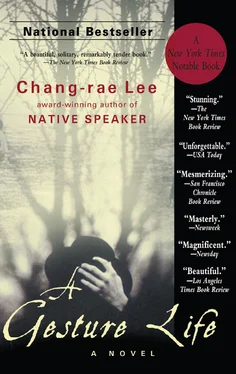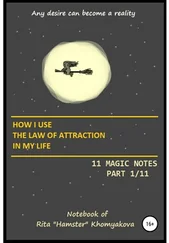But late one Friday evening I drove the station wagon down to the main road and followed it until it crossed the river, taking a smaller, unlighted road east past the bare land of the power switching station and the scrap-metal yard, to a large older subdivision called The Orchids that had never been fully developed, where Turner Street is. The neighborhood is more like one in Ebbington than in Bedley Run, a mix of cheaper apartments and small one-story houses, and had been left the way it was to satisfy a county requirement for lower-income housing units in towns like ours. Mostly decent people live there, the few entrenched working-class of Bedley Run and new younger couples who are always fixing up the charming old cottages and the tiny treed lots they sit on. But fifteen years ago there were a number of boarded-up places with weeds and saplings overtaking the porches, the ivy growing through the broken panes of the windows, and among these were the derelict places owned by the likes of Jimmy Gizzi.
It was already late in the evening, and I don’t think I would have found the house on my own had not the lights been on and loud music playing, various older-model pony cars parked in a bunch at the end of the dead-end street and up where the curb should have been. I knew it was the Gizzi place from the way Officer Como had described it, a squat high-ranch house with a bulging bedroom addition over the garage, the sole access to which was an exposed stairwell attached to the side of the building.
I parked halfway down the block and walked up to the property. From the soft light of the house I could see piles of trash and bottles and things like old shoes and undershirts scattered across the filthy yard, wrecked parts of appliances and cars in a heap in front of the open door of the garage, which itself was filled with junk. There was the decrepit, mixed-up scent of engine oil and stale beer and animal spray, the waft of which always seems to overrun certain locales and neighborhoods. And yet with all the lights on and the music and the silhouetted figures behind the curtains moving around dancing, there was a strange festivity to the warm autumn air, as if the place were the site of a favorite seasonal fete, as in those old English novels of Sunny’s that I would glance at from time to time. This, of course, was no manor, but I suppose a house rife with any human activity has something over one unsettlingly spacious and silent.
There were two young men sitting on an old sofa on the front lawn, passing a bottle of liquor and a strange-looking pipe between them. One would tip back the bottle while the other lit the short pipe, and from the smell I knew it was probably marijuana they were smoking. The heavy sweetness of the odor was reminiscent of the time I was stationed in Burma during the war, when some of my comrades would hang certain giant leaves to dry and then cut them up to smoke. Everyone preferred real cigarettes, of course, but there was never enough of them (and toward the end of the conflict, none at all), and the leaves provided a bit of mirth and laxity to our spirits, if also a seizing headache at evening’s end.
The men noticed me through the hazy light and motioned excitedly for me to approach them. They had longish hair in the prevailing style and swarthy, unshaven faces, though I could tell from their voices that they were in their twenties, the youthful ring still there.
“Hey, man, c’mover here, yeah,” the skinnier one said to me. “Hey, Sonny, look, man, it’s like, ‘The Master.’ Hey, old-timer, c’mover here and have a toke with us.”
I decided to speak to them, as I thought to ask them if they knew Sunny, and whether she was inside.
“Hey, man,” the same one said, handing me the pipe. “Would you mind calling me ‘Grasshopper’? Will you say it?”
“I’m looking for my daughter.”
“Yeah, sure. Will you just say it?”
“Do you know her? Is she inside?”
“Just a sec, old-timer, first things first. C’mon, say it for us. Say, ‘Well done, Grasshopper.’”
“The entire phrase?”
“Yeah, that’s right.”
So I said to him, “Well done, Grasshopper.”
At this they instantly broke out in laughter, the skinny one slapping his knee as he bellowed. His thick-cheeked friend was slower in his movements, not laughing as soundly but almost silently, as if he’d tickled himself with a funny idea.
I asked them, “Do you know my daughter, Sunny? Is she inside the house?”
The skinny one kept laughing but thumbed toward the front door, waving me to go in. All the while he kept saying the phrase to his friend in a choppy, halting voice, not at all as I had spoken it. My accent has never been perfect, and was less so then, but I’ve always been somewhat proud of my flowing verbiage, and that I speak in the familiar, accepted rhythms.
“Is she inside?”
“Yeah, yeah,” the skinny one said, hardly able to look at me without gasping, “everybody’s in the house.”
“Thank you.”
I returned the pipe (untried) and ventured up the tumbled, cracked concrete steps to the door. I banged the fake brass knocker but even I could hardly hear it for the loudness of the music inside. The knob hung loose and was almost falling off and the door swung open with a slight push. The place was raucous and crowded. As there was no foyer I was immediately in the small living room, where people were crammed onto the sectional L-shaped sofa, as well as sitting on its back and low arms. People were dancing everywhere, couples and then sole men unsteadily swaying to themselves. What struck me immediately was that a number of the partygoers were black and Puerto Rican; colored people were a rare sight in Bedley Run, especially at social events, and never did one see such “mixed” gatherings. I, certainly, would sometimes find myself at Mary Burns’s country club for social hours and dances, the only one of my kind, a minor but still uncomfortable feeling, like the digging edge of an overstarched collar. But here everyone seemed unconcerned, and I was strangely heartened by the fact, though my next thought was that Sunny wasn’t simply involving herself intimately with all these men white and brown and black, but was living with them as well, with no other company but theirs.
I didn’t see her anywhere in the room. There were glances and bemused stares but no one seemed to care much about my presence as I went from one group to the next. I was surprised by how few women there were, perhaps a handful out of the crowd of twenty-five or thirty. They looked much older than Sunny, at least twice her age, sallow and fleshy and long-traveled from their youth. I was reminded of the women who sat on stools outside certain alley shops of my native seaside town, their faces painted the colors of crimson and ash, languorous popular songs filtering out beneath the lanterned eaves of their tiny “houses.”
The house kitchen was a rancid, overflowing mess of bottles and ashtrays and spaghetti sauce — stained dishes, the doorless cupboards mostly bare except for a few cans of chili and soup. Down the corridor to the bedrooms there were people sitting on the floor against the walls, drinking beer and smoking while they waited for the bathroom. I could see the doors of the two bedrooms down at the end, and suddenly I was deeply afraid of what I might do if I found her behind one of them. I couldn’t bear to imagine what awful sight it might be, what horrible tangle and depravity. I had only really seen Sunny with boys at the country club, all of them in their tennis whites and sneakers, or at the cotillion-type gatherings in the evenings, their bodies orderly and arranged and the touching in steady orchestrations, the careful waltzes and reels. Even then I used to wonder how I should feel when I saw some severely slim, tall lad place his hand on the small of her back, let it slip down a notch, whether I ought to burn with indignation or shiver or stand back in prideful and surrendering melancholy. And if she were only mine, of my own blood, would the feelings run different? Would I tremble and shake with an even purer intensity?
Читать дальше











![William Frith - John Leech, His Life and Work. Vol. 1 [of 2]](/books/747171/william-frith-john-leech-his-life-and-work-vol-thumb.webp)
![William Frith - John Leech, His Life and Work, Vol. 2 [of 2]](/books/748201/william-frith-john-leech-his-life-and-work-vol-thumb.webp)